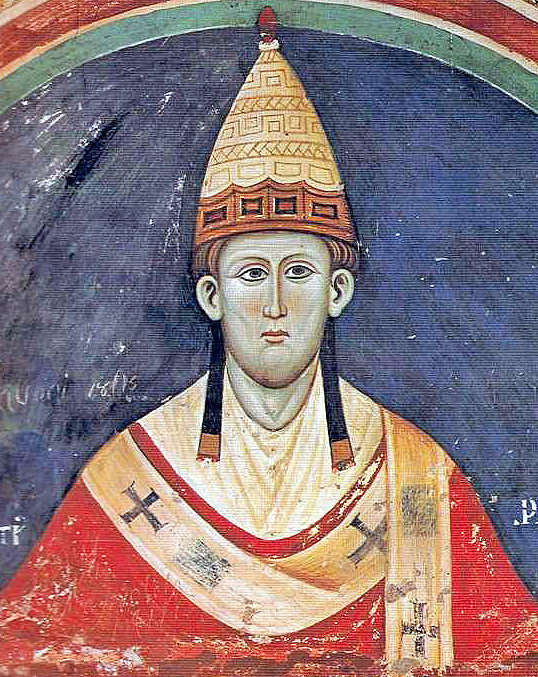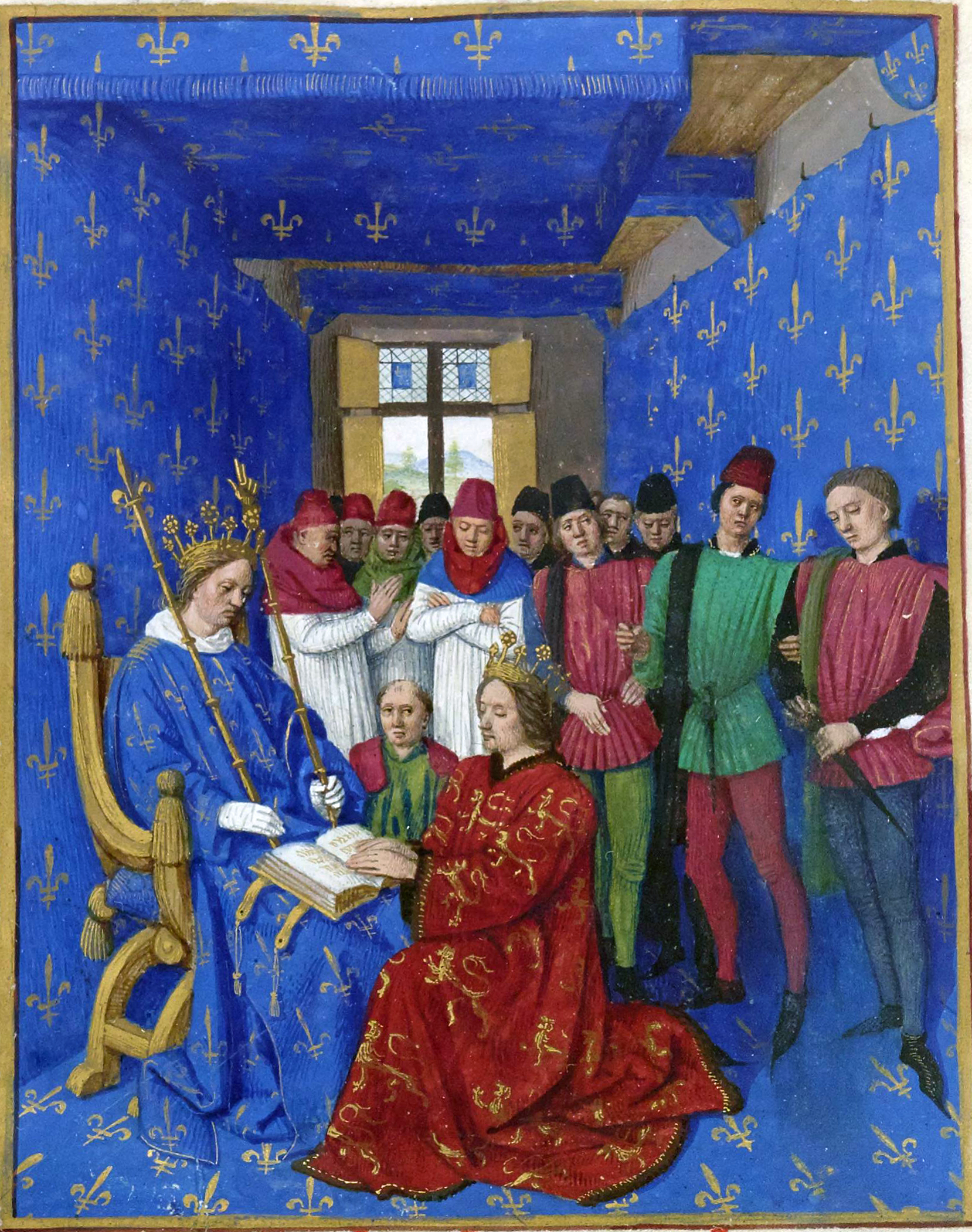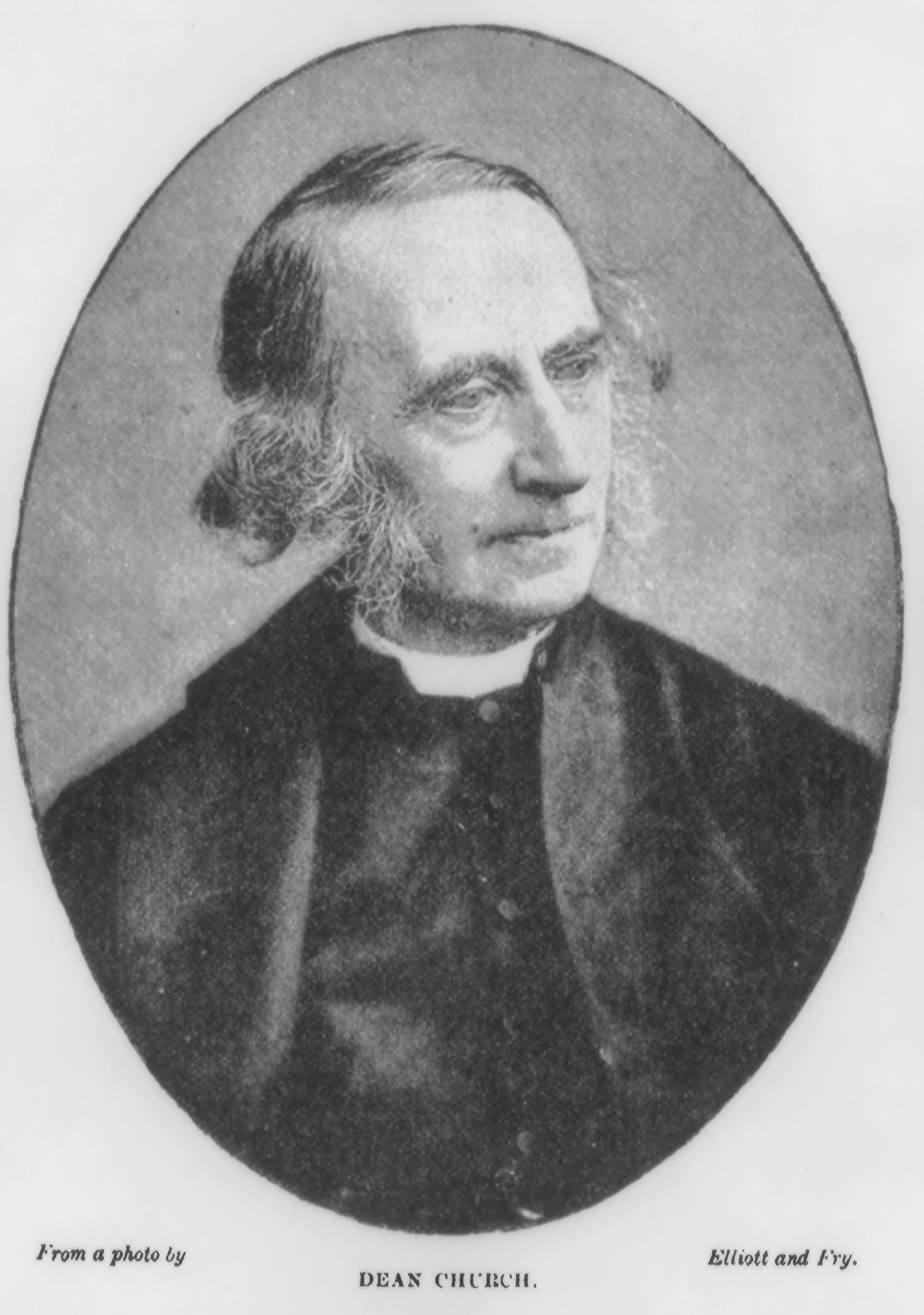|
Monarchia
''Monarchia'', often called ''De Monarchia'' (, ; "(On) Monarchy"), is a Latin treatise on secular and religious power by Dante Alighieri, who wrote it between 1312 and 1313. With this text, the poet intervened in one of the most controversial subjects of his period: the relationship between secular authority (represented by the Holy Roman emperor) and religious authority (represented by the Pope). Dante's point of view is known on this problem, since during his political activity he had fought to defend the autonomy of the city-government of Florence from the temporal demands of Pope Boniface VIII. The work was banned by the Catholic Church in 1585. Date According to most accepted chronology, ''De Monarchia'' was composed in the years 1312–13, that is to say the time of Henry VII of Luxembourg's journey to Italy; according to another, the date of composition has to be brought back to at least 1308; and yet another moves it forward to 1318, shortly before the author's death i ... [...More Info...] [...Related Items...] OR: [Wikipedia] [Google] [Baidu] |
Dante Alighieri
Dante Alighieri (; – 14 September 1321), probably baptized Durante di Alighiero degli Alighieri and often referred to as Dante (, ), was an Italian poet, writer and philosopher. His ''Divine Comedy'', originally called (modern Italian: ''Commedia'') and later christened by Giovanni Boccaccio, is widely considered one of the most important poems of the Middle Ages and the greatest literary work in the Italian language. Dante is known for establishing the use of the vernacular in literature at a time when most poetry was written in Latin, which was accessible only to the most educated readers. His ''De vulgari eloquentia'' (''On Eloquence in the Vernacular'') was one of the first scholarly defenses of the vernacular. His use of the Florentine dialect for works such as '' The New Life'' (1295) and ''Divine Comedy'' helped establish the modern-day standardized Italian language. His work set a precedent that important Italian writers such as Petrarch and Boccaccio would later ... [...More Info...] [...Related Items...] OR: [Wikipedia] [Google] [Baidu] |
Sun And Moon Allegory
The Sun and Moon allegory is used to depict a medieval political theory of hierocracy which submits the secular power to the spiritual power, stating that the Pope is like the Sun i.e. the only source of his own light, while the Emperor is like the Moon, which merely reflects lights and has no value without the Sun. It was espoused by the Roman Catholic Church of Innocent III and instantiated to some extent in medieval political practice. Description Finding this imagery in the Book of Genesis, the Allegory images authentic spiritual authority as the Sun and any and all civil, or political or secular, authority as the Moon. By doing so, it illustrates that the Roman Catholic Pope, as "Supreme Pontiff", "Vicar of Christ", et cetera, and therefore the supreme universal spiritual authority on Earth, is like the Sun that is the one source of light for itself and all other celestial bodies orbiting it; while the Holy Roman Emperor, as symbolic and intended supreme civil, political ... [...More Info...] [...Related Items...] OR: [Wikipedia] [Google] [Baidu] |
Aurelia Henry Reinhardt
Aurelia Isabel Henry Reinhardt (April 1, 1877 – January 28, 1948) was an American educator, activist, and prominent member and leader of numerous organizations. She completed her undergraduate studies at the University of California, Berkeley, her doctoral dissertation at Yale, and studied as a fellow at Oxford. After teaching at the University of Idaho, the Lewiston State Normal School, and with the Extension Division of the University of California, Reinhardt was elected president of Mills College in 1916, and held the position until 1943, making her the longest serving president in the history of the school. Reinhardt was a peace activist during the First World War, an active member of the Republican Party, and supported the ratification of the Treaty of Versailles as well as the formation of the League of Nations. She wrote and spoke extensively throughout the US and Europe, to a range of social, political and business groups, on topics including the education of wom ... [...More Info...] [...Related Items...] OR: [Wikipedia] [Google] [Baidu] |
Unam Sanctam
' is a papal bull that was issued by Pope Boniface VIII on 18 November 1302. It laid down dogmatic propositions on the unity of the Catholic Church, the necessity of belonging to it for eternal salvation, the position of the Pope as supreme head of the Church and the duty thence arising of submission to the Pope to belong to the Church and thus to attain salvation. The Pope further emphasized the higher position of the spiritual in comparison with the secular order. The historian Brian Tierney calls it "probably the most famous" document on church and state in medieval Europe. The original document is lost, but a version of the text can be found in the registers of Boniface VIII in the Vatican Archives. The bull was the definitive statement of the late medieval theory of hierocracy, which argued for the temporal as well as spiritual supremacy of the pope. Background The bull was promulgated during an ongoing dispute between Boniface VIII and King Philip IV of France (Phil ... [...More Info...] [...Related Items...] OR: [Wikipedia] [Google] [Baidu] |
Monarchy
A monarchy is a form of government in which a person, the monarch, is head of state for life or until abdication. The political legitimacy and authority of the monarch may vary from restricted and largely symbolic (constitutional monarchy), to fully autocratic (absolute monarchy), and can expand across the domains of the executive, legislative, and judicial. The succession of monarchs in many cases has been hereditical, often building dynastic periods. However, elective and self-proclaimed monarchies have also happened. Aristocrats, though not inherent to monarchies, often serve as the pool of persons to draw the monarch from and fill the constituting institutions (e.g. diet and court), giving many monarchies oligarchic elements. Monarchs can carry various titles such as emperor, empress, king, queen, raja, khan, tsar, sultan, shah, or pharaoh. Monarchies can form federations, personal unions and realms with vassals through personal association with the monarch, whi ... [...More Info...] [...Related Items...] OR: [Wikipedia] [Google] [Baidu] |
Hierocracy (medieval)
In the Middle Ages, hierocracy or papalism''Hierocracy'' is sometimes construed as a more radical, specifically late medieval variant of ''papalism''. . was a current of Latin legal and political thought that argued that the pope held supreme authority over not just spiritual, but also temporal affairs. In its full, late medieval form, hierocratic theory posited that since Christ was lord of the universe and both king and priest, and the pope was his earthly vicar, the pope must also possess both spiritual and temporal authority over everybody in the world.. Papalist writers at the turn of the 14th century such as Augustinus Triumphus and Giles of Rome depicted secular government as a product of human sinfulness that originated, by necessity, in tyrannical usurpation, and could be redeemed only by submission to the superior spiritual sovereignty of the pope. At the head of the Catholic Church, responsible to no other jurisdiction except God, the pope, they argued, was the monarch o ... [...More Info...] [...Related Items...] OR: [Wikipedia] [Google] [Baidu] |
Pope Boniface VIII
Pope Boniface VIII ( la, Bonifatius PP. VIII; born Benedetto Caetani, c. 1230 – 11 October 1303) was the head of the Catholic Church and ruler of the Papal States from 24 December 1294 to his death in 1303. The Caetani, Caetani family was of baronial origin, with connections to the papacy. He succeeded Pope Celestine V, who had papal resignation, abdicated from the papal throne. Boniface spent his early career abroad in diplomatic roles. Boniface VIII put forward some of the strongest claims of any pope to temporal as well as spiritual power. He involved himself often with foreign affairs, including in France, Sicily, Italy and the First War of Scottish Independence. These views, and his chronic intervention in "temporal" affairs, led to many bitter quarrels with Albert I of Germany, Philip IV of France, and Dante Alighieri, who placed the pope in the Eighth Circle of Hell in his ''Divine Comedy'', among the simony, simoniacs. Boniface systematized canon law (Catholic Church), ... [...More Info...] [...Related Items...] OR: [Wikipedia] [Google] [Baidu] |
List Of Authors And Works On The Index Librorum Prohibitorum
This is a selected list of authors and works listed on the ''Index Librorum Prohibitorum''. The ''Index'' was discontinued on June 14, 1966 by Pope Paul VI. A complete list of the authors and writings present in the subsequent editions of the index are listed in J. Martinez de Bujanda, ''Index Librorum Prohibitorum, 1600–1966'', Geneva, 2002. The Index includes entries for single or multiple works by an author, all works by an author in a given genre or dealing with a given topic. The scope of the prohibition is defined by a Latin phrase in the Index: * ''Omnia opera dramatica'': all plays * ''Omnes fabulae amatoriae'': all novels, or romances * ''Opera omnia theologica'': all theological works * ''Opera omnia'': all works (see note below) The Index includes entries banning ''all'' works of a particular writer. Most of these were inserted in the Index at a time when the Index itself stated that the prohibition of someone's "opera omnia" (all his works) did not cover works whos ... [...More Info...] [...Related Items...] OR: [Wikipedia] [Google] [Baidu] |
Richard William Church
Richard William Church (25 April 1815 – 6 December 1890) was an English churchman and writer, known latterly as Dean Church. He was a close friend of John Henry Newman and allied with the Tractarian movement. Later he moved from Oxford academic life to some prominence in the Church of England. Life Richard William was the eldest of three sons of John Dearman Church, a wine merchant, and his wife Bromley Caroline Metzener (died 1845). His grandfather Matthew Church, a merchant of Cork, and his wife, were Quakers, and John was not baptised into the Church of England until his marriage in 1814. His uncle, General Sir Richard Church (1784–1873), achieved fame as a liberator of Greece. The family moved in 1818 to Florence. After his father's death in 1828 his mother settled in Bath and he was sent to a strict evangelical school at Redland, Bristol. He was admitted in 1832 to Wadham College, Oxford, and took first-class honours in 1836. His mother, meanwhile, was remarried to Thom ... [...More Info...] [...Related Items...] OR: [Wikipedia] [Google] [Baidu] |
14th-century Latin Books
As a means of recording the passage of time, the 14th century was a century lasting from 1 January 1301 ( MCCCI), to 31 December 1400 ( MCD). It is estimated that the century witnessed the death of more than 45 million lives from political and natural disasters in both Europe and the Mongol Empire. West Africa experienced economic growth and prosperity. In Europe, the Black Death claimed 25 million lives wiping out one third of the European population while the Kingdom of England and the Kingdom of France fought in the protracted Hundred Years' War after the death of Charles IV, King of France led to a claim to the French throne by Edward III, King of England. This period is considered the height of chivalry and marks the beginning of strong separate identities for both England and France as well as the foundation of the Italian Renaissance and Ottoman Empire. In Asia, Tamerlane (Timur), established the Timurid Empire, history's third largest empire to have been ever establish ... [...More Info...] [...Related Items...] OR: [Wikipedia] [Google] [Baidu] |
1312 Books
131 may refer to: *131 (number) *AD 131 * 131 BC * 131 (album), the album by Emarosa *131 (MBTA bus) The Massachusetts Bay Transportation Authority bus division operates bus routes in the Boston, Massachusetts metropolitan area. All routes connect to MBTA subway, MBTA Commuter Rail, and/or other MBTA bus services. Many routes are descendants ..., the Massachusetts Bay Transportation Authority bus. For the MBTA bus, see 131 (MBTA bus). * 131 (New Jersey bus), the New Jersey Transit bus {{numberdis ... [...More Info...] [...Related Items...] OR: [Wikipedia] [Google] [Baidu] |
Secularism
Secularism is the principle of seeking to conduct human affairs based on Secularity, secular, Naturalism (philosophy), naturalistic considerations. Secularism is most commonly defined as the Separation of church and state, separation of religion from civil affairs and the state, and may be broadened to a similar position seeking to remove or to minimize the role of religion in any public sphere. The term "secularism" has a broad range of meanings, and in the most schematic, may encapsulate any stance that promotes the secular in any given context. It may connote anti-clericalism, atheism, Naturalism (philosophy), naturalism, Nonsectarian, non-sectarianism, Neutrality (philosophy), neutrality on topics of religion, or the complete removal of religious symbols from public institutions. As a philosophy, secularism seeks to interpret life based on principles derived solely from the material world, without recourse to religion. It shifts the focus from religion towards "temporal" a ... [...More Info...] [...Related Items...] OR: [Wikipedia] [Google] [Baidu] |
.jpg)

.jpg)



